Scientists Study Nearly Complete Basilosaurus Fossil
Egypt’s “Valley of the Whales” has proved to be a very happy hunting ground as a team of scientists announce the discovery of the most complete skeleton of the ancient whale known as Basilosaurus ever found. The skeleton, believed to be around forty million years old, measures eighteen metres in length. A second whale fossil has also been discovered in the body cavity of the leviathan, at this early stage, scientists are unsure whether these bones represent the last meal of the Basilosaurus or perhaps its unborn young.
A Giant Whale
The giant whale was the apex predator in the shallow sea, a remnant of the mighty Tethys Ocean, that once covered this part of the world during the Eocene Epoch. Fossils of crustaceans and a number of fish species have also been discovered at the site. In addition, the discovery of several large shark teeth indicate the Basilosaurus corpse may have been scavenged prior to its burial.
Researchers Carefully Excavating the Nearly Perfectly Articulated Basilosaurus Fossil
Picture credit: Egyptian Ministry of the Environment
Basilosaurus
Basilosaurus was an early type of toothed whale. It is descended from a group of terrestrial carnivores, the Mesonychians. Two species have been described to date and this specimen represents one of the largest found in the Fayum deposits south-west of Cairo. The fossil material comes from one of the most important Cenozoic-aged fossil sites in the world, the Wadi Al-Hitan (Whale Valley), a region of the Western Desert of Egypt, which contains the remains of the earliest types of ancient whales (Archaeoceti), scientists are able to trace from these fossils the last stages of cetacean limb evolution, in which the hind limbs were eventually lost.
A World Heritage Site
Wadi Al-Hitan has been a UNESCO World Heritage site since 2005. It provides a unique insight into an ecosystem dominated by shallow waters and mangrove swamps that existed along the northern coast of Africa and into what is now, the Sahara Desert.
A Model of the Fearsome Marine Predator Basilosaurus
Picture credit: Everything Dinosaur
Basilosaurus Featured in a Documentary
Basilosaurus featured in the BBC television series “Walking with Beasts”, a follow up to the hugely successful 1999 “Walking with Dinosaurs”. Episode Two was entitled “Whale Killer” and told the story of a female Basilosaurus as she struggles to find food and find somewhere safe to give birth. As a result of this media exposure, Everything Dinosaur does receive requests for information about this early whale from time to time.
In terms of models, a Basilosaurus is featured in the “Prehistoric Sealife Toob” manufactured by Safari Ltd. It is one of ten models in this model set.
To see the range of Safari Ltd models supplied by Everything Dinosaur, including the Prehistoric Sealife Toob: Wild Safari Prehistoric World Models.
To read Everything Dinosaur’s review of the Safari Ltd Prehistoric Sealife Toob: Prehistoric Sealife Toob Reviewed.
Basilosaurus Fossils
It is hoped that this new fossil discovery can help solve one of the enduring mysteries associated with Basilosaurus. The very long and serpentine shape of Basilosaurus (the name means “King Reptile”), has presented anatomists and vertebrae palaeontologists with a bit of a puzzle. The distal caudal vertebrae are compressed in a very similar way to those seen in animals with a tail fluke. However, having the tail fluke at the very end of a long, sinuous tail (as in the model above), would have given this marine mammal quite an awkward and inefficient swimming action.
With a complete specimen of the tail bones to study, it is hoped that these fossils will provide more information on early cetacean locomotion.
A Close up of the Preserved Skull and Jaws of Basilosaurus
Picture credit: Egyptian Ministry of the Environment
A Model of a Basilosaurus (PNSO
PNSO have a large Basilosaurus prehistoric whale model in their range: PNSO Prehistoric Animal Models and Figures.


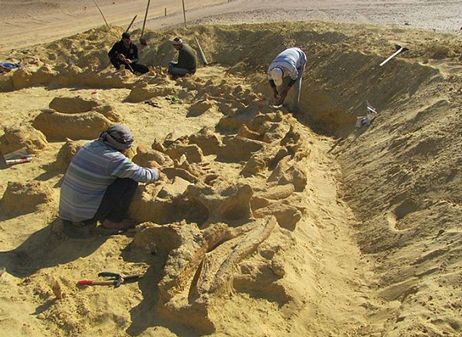
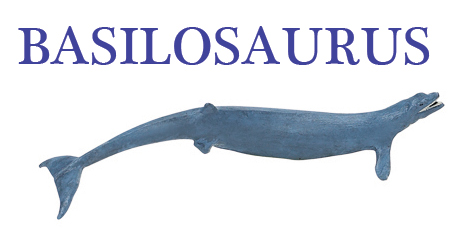
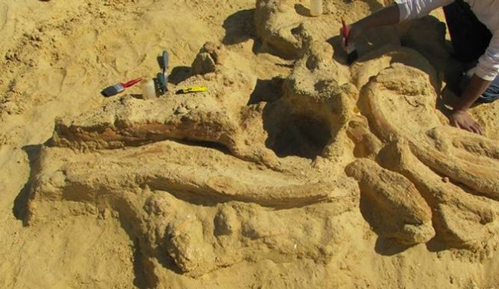
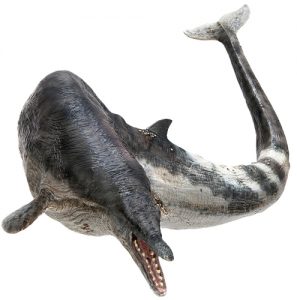
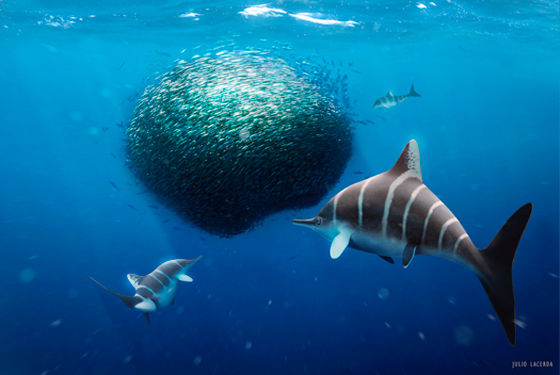

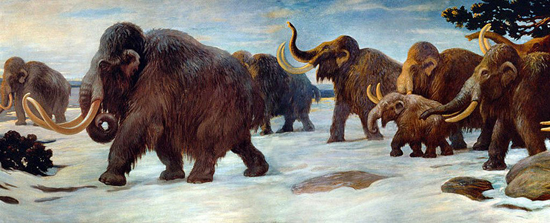
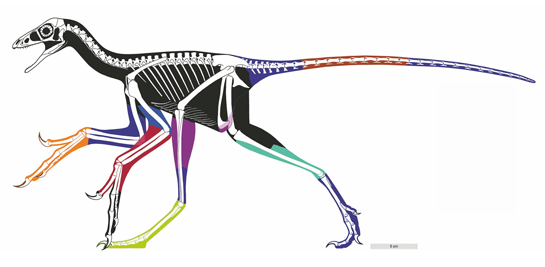
Leave A Comment